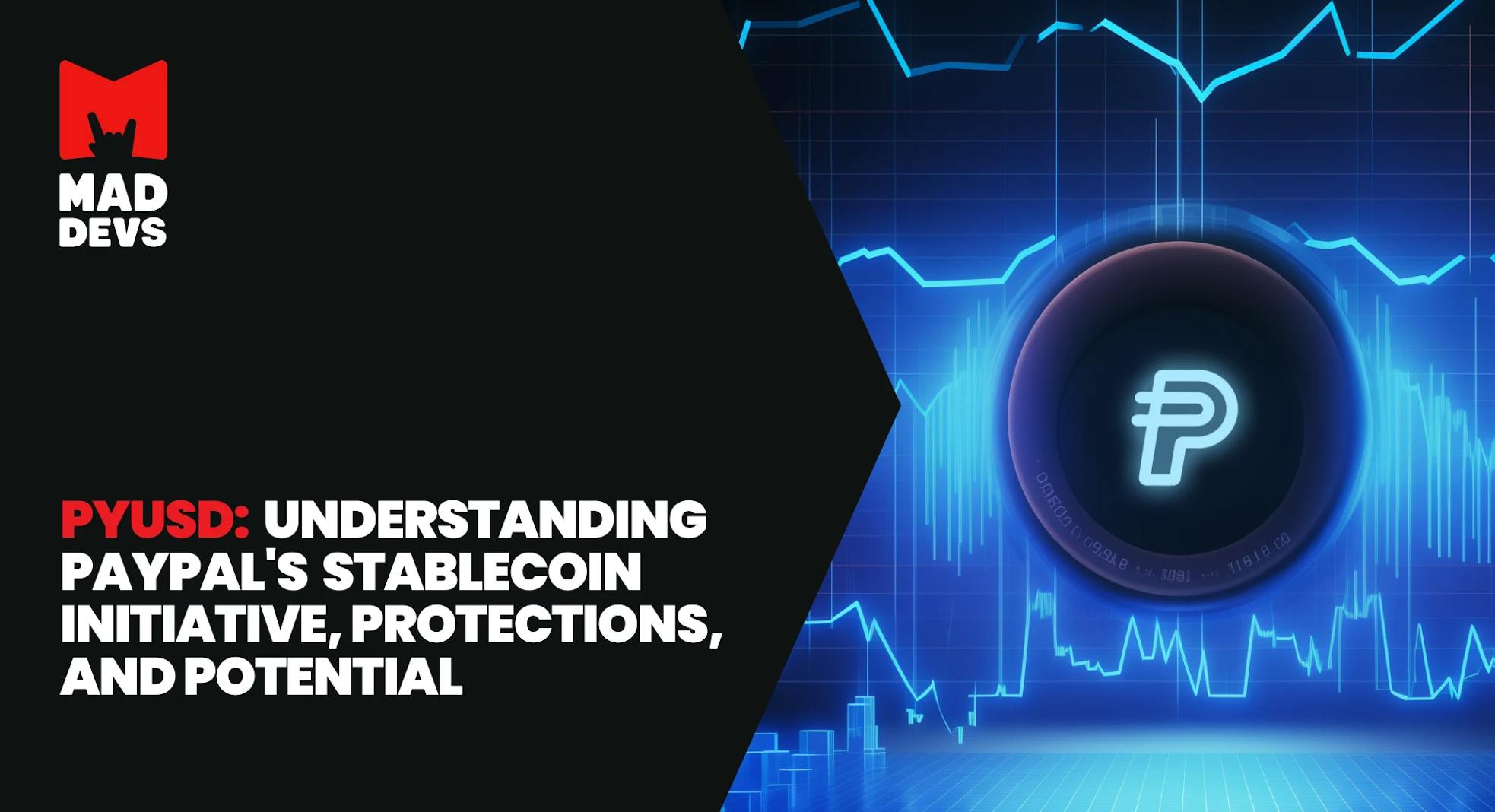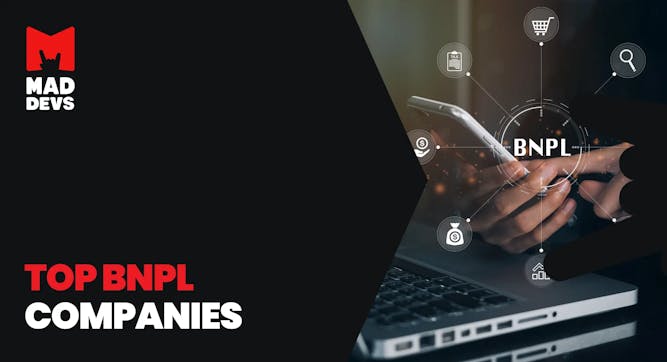Digital currencies and cryptocurrencies, even with all their highs and lows, have now claimed their permanent spot alongside other asset classes and continue to unveil their potential, capturing more terrain in finance. As such, many major companies join this race sooner or later, and now it is PayPal's turn.
In this article, you will discover what is so special about PayPal's foray into the stablecoin arena. What is the current state of the stablecoin market, and why does PayPal want to enter it with its own PYUSD? Who licenses and regulates PYUSD, and what guarantees and protections does it offer users? And what opportunities does it already present for individual investors, as well as what potential does it hold for the entire financial industry?
PYUSD overview
PYUSD is a stablecoin launched by PayPal, pegged to the US dollar, ensuring its stability and making it attractive for users and merchants seeking price predictability. Unlike many other cryptocurrencies, PYUSD isn’t prone to significant price volatility.
The introduction of PYUSD into the PayPal ecosystem is part of the company's strategy to enhance and expand its payment services. It allows users and merchants to avoid going through traditional banking systems, which can reduce commission costs and speed up the transaction process. Leveraging blockchain technology, which underpins PYUSD, PayPal aims to offer more transparent and secure transactions with better protection of users' personal information because of decentralization and data encryption.
The development of PYUSD is also aimed at facilitating the interaction between traditional and digital financial systems. By creating a bridge between fiat, digital, and cryptocurrencies, PayPal strives to make the transaction process less complex, more accessible, and reliable for many users and merchants. Thanks to blockchain technology, PYUSD strives to offer a user experience with fewer delays and lower commission costs compared to traditional payment methods.
The concept also connects to Web3, allowing PYUSD to be easily integrated into modern blockchain applications, offering users broader possibilities for interaction with the digital world. This reflects PayPal's ambition to make the payment ecosystem more flexible and adapted to new technological realities.
Сurrent stablecoins state and their role in the digital economy
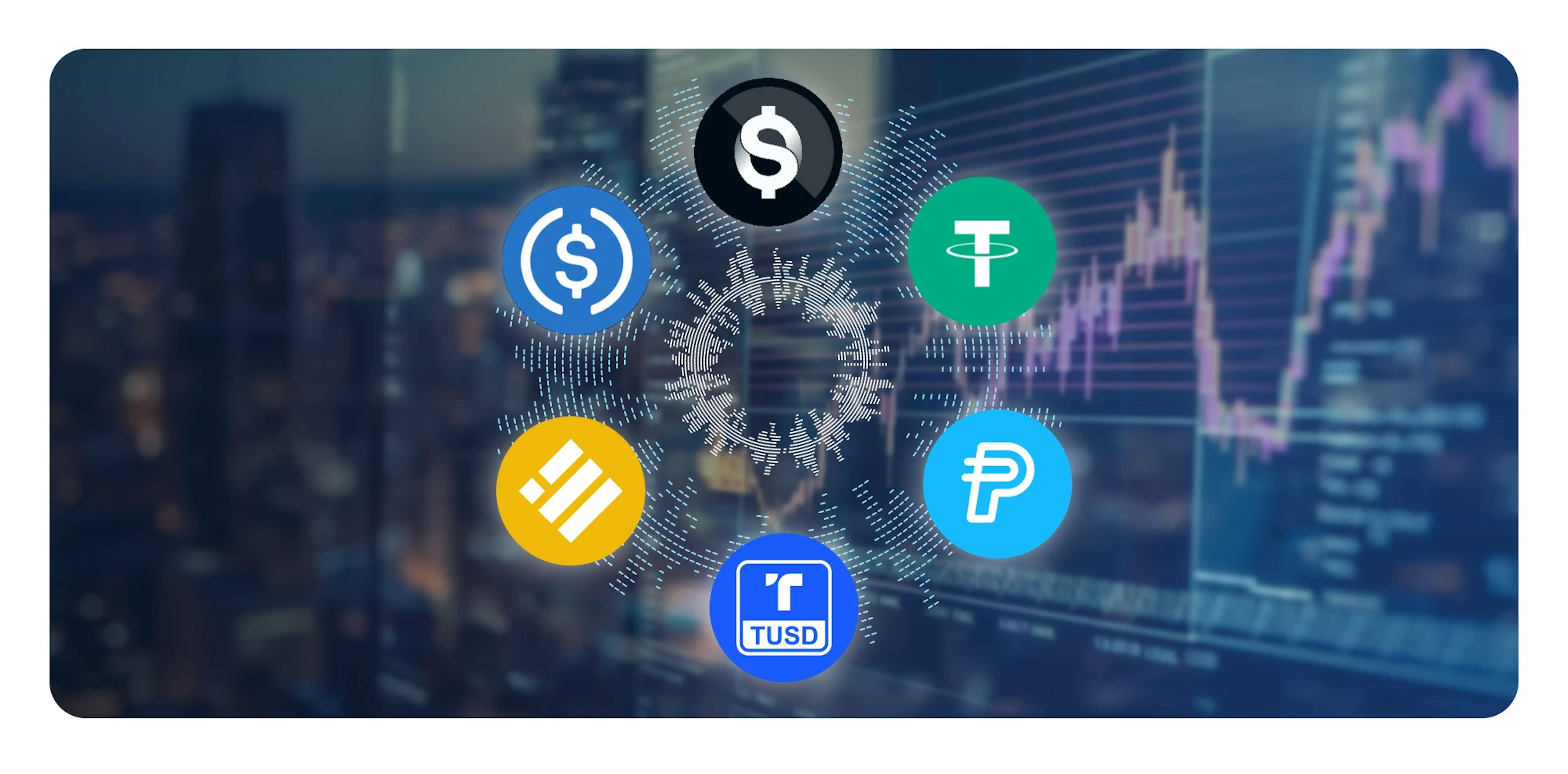
Stablecoins have carved out a significant niche in the digital economy, blending the best of both worlds: the stability of fiat currencies and the technological advantages of cryptocurrencies, providing a stable medium of exchange, unit of account, and store of value. Stablecoins have become indispensable for conducting cross-border transactions, as they significantly reduce associated costs and time compared to traditional banking systems. Additionally, stablecoins have found their application on decentralized finance (DeFi) platforms, which are used for lending, borrowing, and earning interest, among other financial operations. Furthermore, stablecoins are key in attracting new users to the cryptocurrency sphere, serving as a less volatile entry point for individuals and institutions wanting to explore the digital assets market.
With the recent surge in popularity, the market capitalization of stablecoins soared, reaching an impressive mark of more than $125.034 billion as of 2024. The majority of this market capitalization is attributed to Tether (USDT), followed by USD Coin (USDC). These stablecoins are predominantly pegged to the US dollar, contributing to maintaining their value stability.
The regulatory environment surrounding stablecoins is evolving, with authorities and blockchain companies engaging in dialogues to ensure favorable conditions for the growth and adoption of stablecoins. For example, the European Central Bank has acknowledged the role of stablecoins in both the crypto economy and the real economy, highlighting both their potential risks and their potential to enhance the efficiency of payments and contribute to financial inclusion. Also, the UK, having left the European Union, has its own regulations regarding the regulation of cryptocurrencies in general and bitcoins in particular, making companies engaged in such activities subject to Money Laundering, Terrorist Financing, and Transfer of Funds Regulations 2017 and registering with the FCA.
For instance, the US Securities and Exchange Commission (SEC) focuses on the possible classification of some stablecoins as securities, automatically subjecting them to the commission's regulations. The SEC emphasizes the importance of compliance with securities laws for developers of stablecoins and other cryptocurrency products, stressing that it is necessary to ensure adherence to all applicable laws and regulations. The SEC's stance aims to minimize the risks of fraud and market manipulation, contributing to protecting investor interests.
Why PayPal needs PYUSD
The stablecoin market is dominated by giants such as Tether and Circle — they collectively control more than 88% of the total market capitalization. The stability and reliability associated with these stablecoins afford them the leading positions, with Tether at a capitalization of $85.45 billion and Circle at $24.559 billion. However, Tether and Circle lack a deeply established financial reputation beyond the stablecoin market, and this is precisely where PayPal has an unequivocal competitive advantage.
As an established player in the payment systems market, PayPal possesses all the prerequisites for a successful expansion of its influence and significant potential in the stablecoin sector without the need to build a reputation from scratch. Their new initiative, PYUSD, could become the catalyst that not only strengthens PayPal's position but also contributes to a multiplicative growth in their capitalization.
Regulatory aspect of stablecoins
Here, we delve into the most complex part that largely determines the potential and actual development of stablecoins: the specifics of licensing and regulation.

Licensing and regulation of Tether
Tether, an unlicensed stablecoin in the United States, lacks regulation from the New York Department of Financial Services (NYDFS) and is only registered with the Financial Crimes Enforcement Network (FinCEN), focusing on anti-money laundering. Despite registration, it isn't fully regulated, and Tether isn't obligated to meet capital requirements or provide financial reports.
In 2021, New York Attorney General (NYAG) Letitia James mandated Bitfinex and Tether to cease trading in New York, resulting in a $18.5 million penalty. Allegations included misleading clients, overstating reserves, and concealing global losses. The settlement required Tether to report efforts to cease trading in New York and initiatives to protect the market. After a 22-month legal battle, the case was settled, enabling Bitfinex and Tether to avoid further investigation and regulatory scrutiny. Additionally, Tether is not recognized as an official legal tender, and therefore, it is not regulated by entities such as Federal Deposit Insurance Corporation (FDIC) or Securities Investor Protection Corporation (SIPC).
Licensing and regulation of Circle
Circle is licensed and regulated by NYDFS for money transmission and virtual currency operations. As a regulated entity, Circle must adhere to NYDFS requirements, including consumer protection. In case of a complaint, clients should initially contact Circle and, if necessary, escalate the matter to NYDFS's Consumer Assistance Unit. It is essential to understand that virtual currency, including Circle's USDC stablecoin, is not legal tender and lacks state backing. Accounts and balances are also not protected by FDIC or SIPC.
Users bear the consequences of sending USDC beyond the Circle platform, as transactions are irreversible. Circle reserves the right to block addresses and freeze associated USDC if linked to illicit activities. Additionally, Circle may report suspected illegal activities to law enforcement, potentially leading to losing user rights to their USDC. With broad licenses and permissions across jurisdictions, Circle demonstrates a commitment to regulatory compliance. Despite these efforts, Circle emphasizes the risks, such as the absence of traditional deposit insurance and transaction irreversibility.
Licensing and regulation of PayPal
The launch of PYUSD has also caught the attention of the SEC. PayPal has reported receiving a subpoena from the SEC demanding documents related to the stablecoin PYUSD and stated they are working on interaction without disclosing detailed information.
- Receipt and transfer of virtual currency;
- Storage, holding, or control of virtual currency on behalf of others;
- Buying and selling virtual currency as a business for customers;
- Providing virtual currency exchange services as a business for customers;
- Managing, administrating, or issuing virtual currency.
Regarding FDIC regulation, since PayPal offers its customers in the US a range of services with traditional digital finances — there is some insurance on balances in PayPal accounts, but this is only applicable in certain cases. For example, funds may be insured through the FDIC if the user has opened a PayPal Debit Card account. However, it is important to note that this FDIC insurance does not protect against PayPal's bankruptcy but ensures the balances in the event of bankruptcy of the bank where PayPal funds are stored. This potentially inspires more confidence than Circle if you remember the recent SVB story.
Also, SIPC usually does not cover digital or crypto assets such as stablecoins but protects against the loss of cash and securities, such as stocks and bonds, belonging to a client of a financially troubled SIPC-member brokerage firm. However, even PayPal's operations related to traditional currencies and their status as a financial intermediary do not fall under the jurisdiction of SIPC.
Сomparison of guarantees and security Tether vs. Circle vs. PayPal
Circle entered the stablecoin market earlier and holds more licenses in individual states than PayPal, which has yet to catch up. PayPal started its operations as a company in the whole financial sector much earlier and has an extensive ecosystem with a good reputation. Both are regulated by NYDFS backed by NMLS, which requires transparency through ongoing reporting and maintaining an adequate capital level, unlike Tether, registered only in FinCEN. Nevertheless, it is important to remember that neither of them is regulated by FDIC or SIPC, indicating the absence of direct deposit insurance.
| TETHER | CIRCLE | PAYPAL | |
|---|---|---|---|
| Regulation by NYDFS | Not regulated by NYDFS | Regulated by NYDFS | Regulated by NYDFS |
| Compliance with NMLS standards | Not subject to NMLS standards | Subject to NMLS standards | Subject to NMLS standards |
| Regulation by FinCEN | Registered with FinCEN, but not regulated | Regulated with FinCEN | Regulated with FinCEN |
| Regulation by FDIC | Not covered by FDIC | Not covered by FDIC | Not covered by FDIC |
| Regulation by SIPC | Not covered by SIPC | Not covered by SIPC | Not covered by SIPC |
| State-level regulations | Not regulated in the US | Subject to most state regulations | Subject to most state regulations |
| Local Regulations in EU countries | Not explicitly regulated at the local level in EU countries | Subject to EU regulations and local laws | Subject to EU regulations and local laws |
| Requirements for ongoing reporting | Less transparent financial operations | Committed to regulatory compliance and transparency, with specific ongoing reporting | Committed to regulatory compliance and transparency, with specific ongoing reporting |
| Consumer protection | Limited consumer protection | Stringent consumer protection | Stringent consumer protection |
| Capitalization and reserves | Not regulated or controlled | Regulated and controlled by NYDFS | Regulated and controlled by NYDFS |
| Guarantees in disputes/difficulties | No guarantees in financial disputes | Limited guarantees in financial disputes | Limited guarantees in financial disputes |
Process of obtaining licenses and interaction with NYDFS
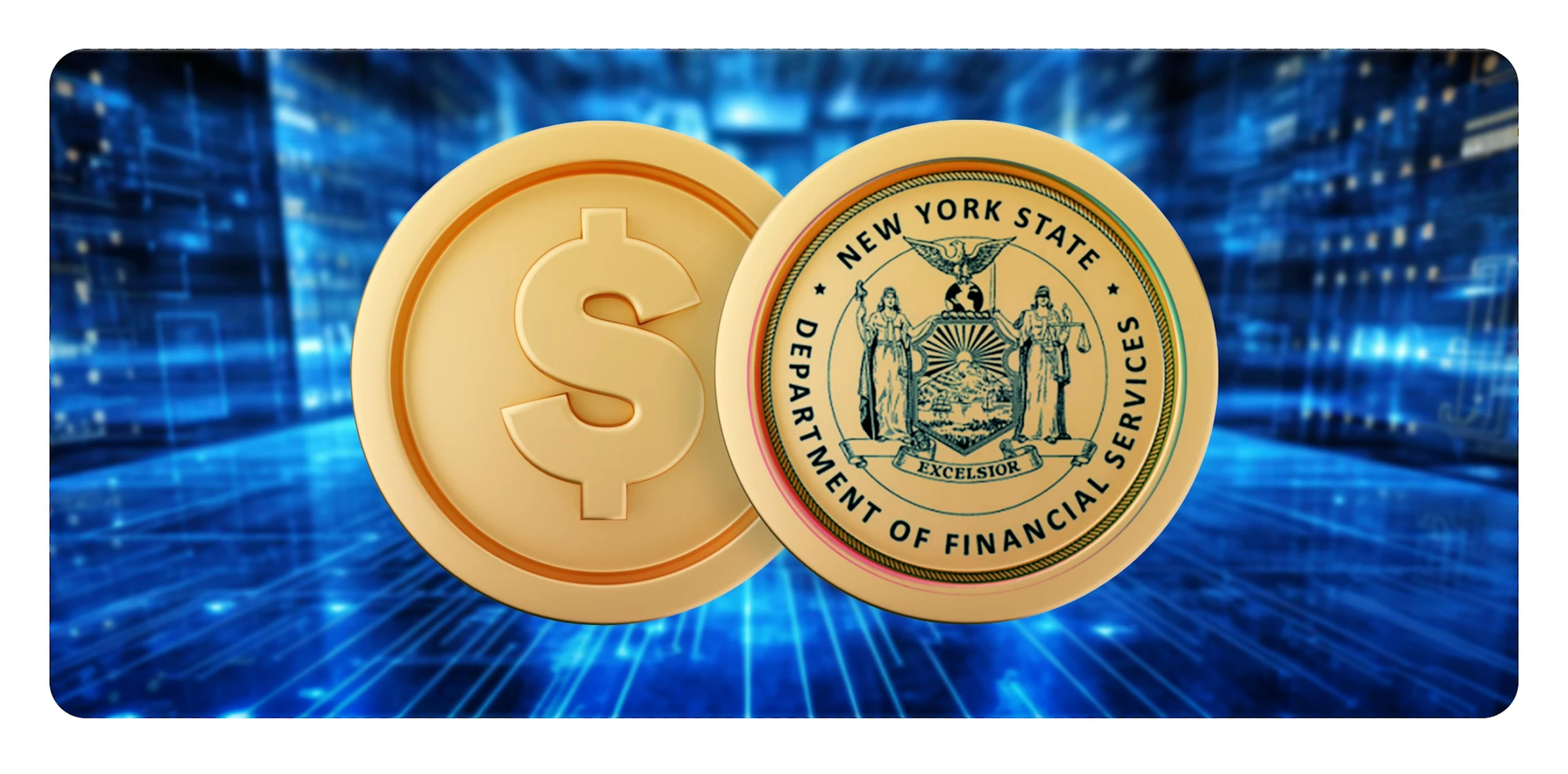
Application process. Obtaining a BitLicense is a complex and expensive task; initial costs amount to $5,000, but considering time, legal expenses, and other fees, the total cost can reach $100,000, depending on the size of the cryptocurrency company.
Initial application submission. Applicants first file an application with the Nationwide Multistate Licensing System & Registry (NMLS), complete a company application form, and can only submit it once.
Applicant requirements. The company must comply with all applicable federal and state fiscal policies and have documented compliance policies. It must also provide a certain amount of assets for financial stability and sustainable operation, the size of which is determined by the regulatory authority NYDFS.
US dollar reserve. It is necessary to maintain a US dollar deposit or trust account to protect the assets and funds of clients, the size of which is also determined by NYDFS.
Regular inspections and reports. The licensee is required to undergo regular inspections and provide financial reports and audited financial disclosures.
AML and cybersecurity. An anti-money laundering and cybersecurity plan must be developed, including a KYC plan and the presence of a chief information security officer.
Benefits of the license. Having a BitLicense protects companies from unnecessary lawsuits and fraudulent investors and also provides special licenses for companies engaged in the transfer, storage, or security, buying and selling of virtual currency, including exchange for legal tender, managing the exchange, and issuing it.
Improvements to the regulatory framework. NYDFS continues to review the BitLicense regulatory framework, aiming to simplify and clarify the approval process. Conditional licenses have also been introduced to simplify the application process for small businesses.
Impact of regulation on the operation and acceptability of PYUSD
Integration with traditional financial systems. Owning a BitLicense implies that PYUSD has undergone rigorous scrutiny by NYDFS, allowing it to interact legally with banks and traditional financial institutions. This interaction obliges PYUSD to maintain high standards of financial reporting and corporate governance, directly affecting its operational activities and strategic planning.
Reserves and value of PYUSD. According to NYDFS regulations, PYUSD must ensure the availability of sufficient reserves to maintain the stability of its stablecoin. This directly improves the perception of PYUSD's acceptability as a stable and reliable digital currency, increasing its attractiveness as a means for transactions and value preservation.
Compliance with AML and KYC requirements. BitLicense requires PYUSD to conduct detailed identification of its clients and comply with anti-money laundering requirements. This sets a higher entry threshold for new users for PYUSD, but at the same time, increases its legitimacy and acceptability among regulated financial institutions and informed investors looking for secure and regulated assets.
Accountability to the regulator. Having a BitLicense means PYUSD is obliged to provide the regulator with full information about its operations, which includes monitoring transactions and tracking fund flows. This requirement maintains a high level of transparency and can serve as an additional confidence factor for users and investors in its reliability and stability.
Limitations and obligations. BitLicense imposes certain restrictions on PYUSD, in particular regarding the types of permissible investments and operations, which can affect its business model and expansion strategies. These limitations are considered in strategic planning and can be used to develop products that are fully compliant with regulations and ensure a high level of user protection.
Impact on innovation and development. Finally, BitLicense creates a framework as well as incentives for innovation within the legal field for PYUSD. On the one hand, strict requirements may slow down the adoption of new technologies, but on the other hand, they can stimulate the development of safer and regulated products, which can strengthen its market position in the long term.
Transparency and accountability
To ensure transparency of the assets underlying the PYUSD stablecoin, Paxos, the issuer of this digital asset, has established strict reporting and audit procedures. To confirm the compliance of its financial obligations, Paxos entrusts the analysis of its financial statements to the audit firm WithumSmith+Brown, PC. These audit reviews comply with the American Institute of Certified Public Accountants (AICPA) industry standards developed by leading accounting bodies in the US.
As part of its transparency initiatives, the company has also published an initial report on the state of its reserves. This document emphasizes that the amount of assets backing each issued token corresponds to their nominal value. This data shows a direct correlation between the issued tokens and the presence of corresponding financial assets.
To strengthen confidence in the stablecoin, Paxos has taken steps to publish additional proofs of its reserves. These materials will include detailed reports available for public review, allowing users to better understand the structure and adequacy of the financial reserves behind each PYUSD token.
Thus, the systematic publication of financial reports and audit conclusions confirm Paxos's commitment to high standards of transparency and reinforces overall confidence in the financial reliability of the PYUSD stablecoin.
Potential for consumers and market
You can see many implications here, both obvious to end users and tactical and strategic for PayPal itself. Let's look at them closely.
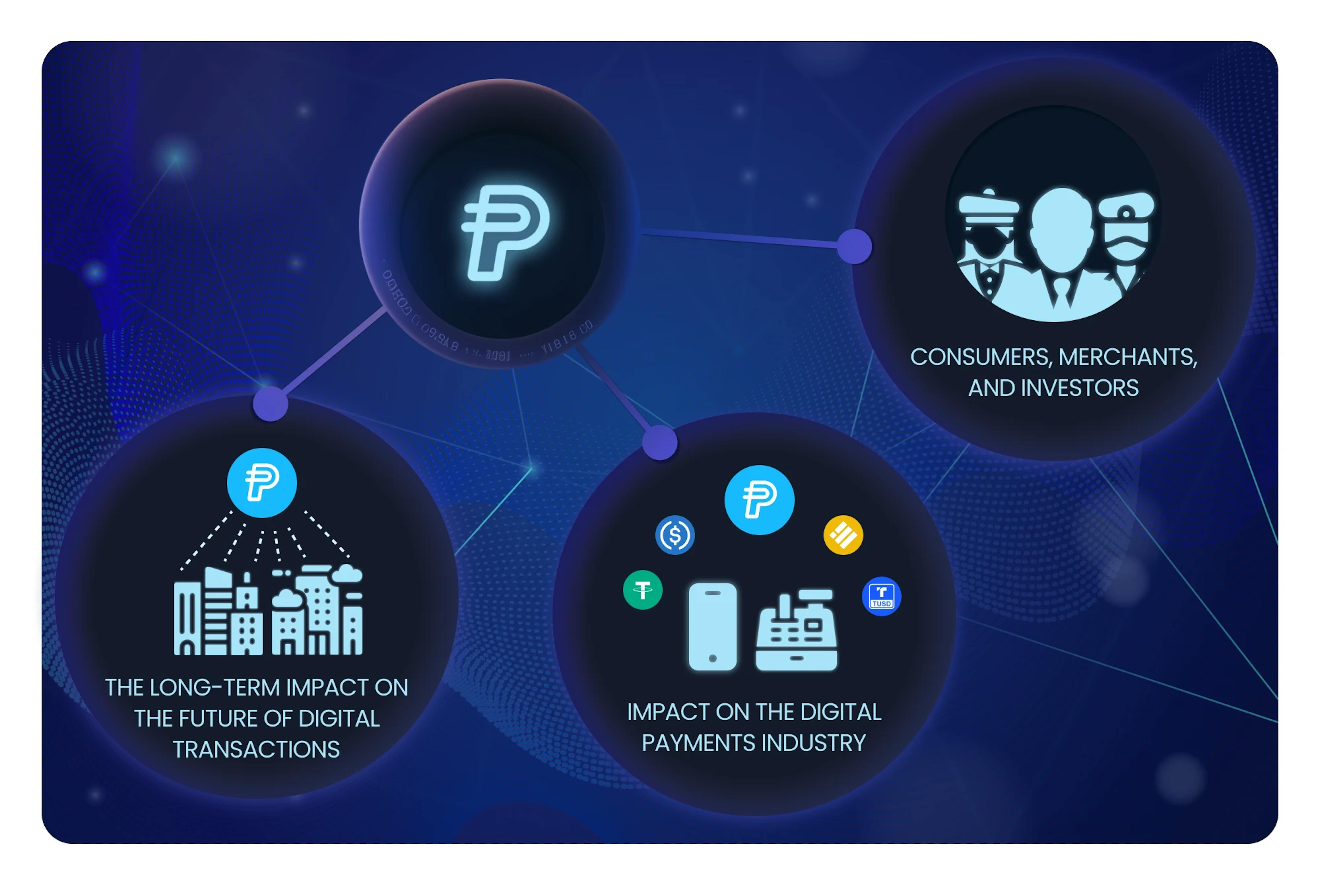
Opportunities for consumers, merchants, and institutional investors
For PayPal users, PYUSD offers an undeniable advantage in direct integration with a widely used payment system, guaranteeing seamless switching between fiat funds and the stablecoin without needing external exchanges. This feature is unique as it is embedded directly into the PayPal ecosystem, allowing users to instantly convert funds and use them for cross-border payments, eliminating delays and additional fees often encountered in traditional banking systems. Moreover, PYUSD ensures simplicity in implementing automatic payments and subscriptions, as its stability removes the risk of volatility inherent in typical cryptocurrencies while retaining all the benefits of digital currencies, such as transaction transparency and traceability.
It also acts as an instrument that provides institutional investors with a stable digital asset directly backed by PayPal, adding an additional level of trust and opportunities for integration into existing financial structures. This allows investors to interact with the PayPal ecosystem to expand their operations, including payments, settlements, and even planning long-term investment strategies. A distinctive feature of PYUSD is its potential to provide real-time liquidity, which is particularly important for investors involved in high-frequency trading and requiring immediate access to stable and liquid assets. Adding it to a portfolio can also reduce overall operational risks through asset diversification and ensuring a stable reserve of value, which is unattainable with other stablecoins that do not have such corporate support and integration into global financial systems.
Potential impact of PYUSD on the cryptocurrency and digital payments industry
First and foremost, PYUSD can play a pivotal role in simplifying access to cryptocurrencies for a broad user base thanks to PayPal's straightforward interface. For those unfamiliar with cryptocurrency exchanges, it becomes an easy gateway into crypto investments, allowing the purchase, storage, and spending of cryptocurrency within a single platform.
Furthermore, introducing PYUSD into the PayPal ecosystem increases market liquidity, facilitating swift and efficient transactions between fiat and cryptocurrencies. This removes many of the barriers that previously limited the influx of new investors and contributes to the integration of cryptocurrencies into traditional financial flows.
And, of course, its support from the reliable and recognizable platform of PayPal may contribute to stabilizing cryptocurrency prices, providing traders and investors with a stable asset to hedge risks. A stablecoin perceived by the market as trustworthy and predictable can reduce volatility and contribute to a more stable trading environment.
All of this together forms the potential to strengthen the cryptocurrency market and expand its integration with traditional finance. So, it is not merely adding another option for cryptocurrency users; it offers an integrated solution that can make cryptocurrencies more accessible, understandable, and attractive to a broad audience, including those who have not yet engaged in cryptocurrency transactions.
The long-term impact of PYUSD and its potential in shaping the future of digital transactions
Rethinking fiat transactions in the digital era could be significantly accelerated with the introduction of PYUSD. A stable digital currency based on the US dollar, combined with the proven infrastructure and brand strength of PayPal, creates a foundation for a new financial era. The impact of PYUSD could extend beyond providing just another payment option; it has the potential to standardize and simplify cross-border financial operations, making them more accessible and less expensive for users worldwide.
In addition, it could serve as a catalyst for broader recognition and integration of digital fiat currencies in everyday commercial activities. It could promote the development of new financial instruments and business models that will incorporate digital currencies as a key element of economic interactions.
Most importantly, it could be foundational in forming new regulatory approaches to strengthen the stability and security of digital currencies. This, in turn, could lead to a global rethinking and reforming of the financial system, making it more adaptable to the changing conditions of the digital economy.
Summary
In this article, you learned about PayPal's strategic foray into the world of stablecoins with the launch of PYUSD, including its clear motivation and unique potential to change the digital currency landscape. We discussed the key aspects of licensing and regulation, as well as measures taken by PayPal to ensure transparency and reliability of PYUSD compared to its closest competitors, such as Tether and Circle. You also gained insights on how PYUSD can offer significant advantages for end-users and institutional investors and how it can contribute to the accessibility and stability of the cryptocurrency market, as well as accelerate the integration and standardization of next-generation global transactions. Now, you have much more to evaluate the development of PYUSD and make informed decisions regarding it.

